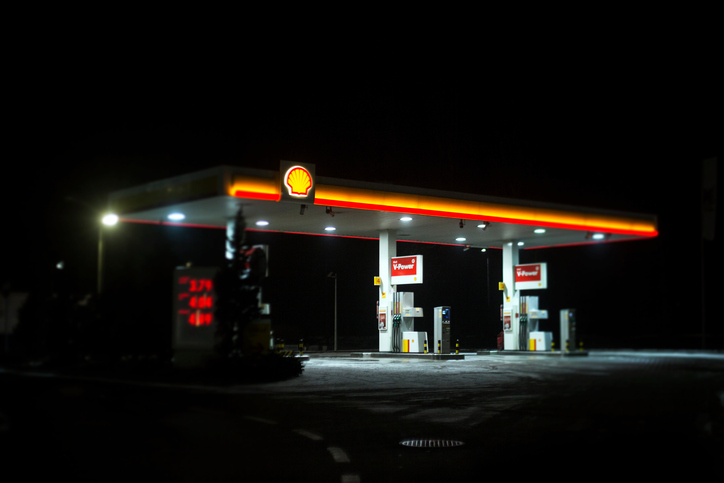Shell slides after big earnings miss
A big earnings miss has shaken Royal Dutch Shell shares and raised questions about its dividend plans.
1st August 2019 12:16
by Graeme Evans from interactive investor
A big earnings miss has shaken Royal Dutch Shell shares and raised questions about its dividend plans.

A shocking quarter for Royal Dutch Shell (LSE:RDSB) after profits came in 30% short of expectations has done little to support the oil giant's claim it is building a world-class investment case.
The poor performance was blamed on lower oil, gas and LNG prices as well as the impact of challenging economic conditions on chemicals and refining margins.
The industry's clean earnings measure of current cost of supplies showed US$3.46 billion for the three months to June 30, missing the market's forecast for $4.93 billion by some way despite a 7% year-on year surge in upstream production for the quarter.
The fact that Shell continues to generate impressive levels of cash limited the share price damage today. The UK's biggest dividend payer was down 5% at 2,479.5p, which is where the stock was trading in early June at the time of its strategy update.
To make matters worse for the company, rival BP (LSE:BP.) got a positive reaction to its quarterly results presentation on Tuesday after posting profits ahead of expectations.
Analysts at UBS, who have a "buy" recommendation and 2,900p price target on Shell, wondered whether today represented one of the Anglo-Dutch company's "periodic problem quarters". The differences, they said, had all fallen negatively and driven a "big miss".
The timing isn't ideal for Shell, given that it has only just set out grand plans for the 2021 to 2025 period involving potential total shareholder distributions of $125 billion or more in the form of dividends and share buy-backs.
This compares with the $90 billion expected for the current five year period to 2020 and $52 billion in shareholder distributions in the period 2011 to 2015. These forecasts are based on free cash flow reaching $35 billion for 2025 at $60 US dollars a barrel, compared with between $28 billion and $33 billion for the current five-year period.
It needs its upstream business to continue pumping out the strong cash flows if it is to meet its new promises, as well as fund expansion towards low-carbon energy such as biofuels, hydrogen, wind and solar power. Cash flow from operating activities for the second quarter was $11 billion, a rise of 16% on the same period a year ago.
CEO Ben van Beurden said today:
"We have delivered good cash flow performance, despite earnings volatility, in a quarter that has seen challenging macroeconomic conditions in refining and chemicals as well as lower gas prices."
In June, he reiterated his confidence in Shell becoming a "world-class investment case" based around its high-margin portfolio, improving returns and a globally recognised brand.
Analysts have previously countered that Shell's ability to reward shareholders in times of lower commodity prices and across multiple years will be the true test of world-class status.
An important benchmark for achieving this was set at the end of last year when near-record quarterly cash flows of almost $15 billion easily covered its cash dividend, interest payments, share buybacks and helped to further pay down debt.
High borrowings remain a worry, however, after second quarter gearing - defined as net debt as a percentage of total capital - rose to 27.6% from 23.6%.
It's another reason why shares have so far shown a reluctance to move out of their narrow trading range. Another is the uncertain outlook for global oil prices due to demand-side pressures, such as the US-China trade dispute.
Since 2016, Shell has completed more than $30 billion of divestments to reduce borrowings from the BG acquisition, which is now part of its Integrated Gas division. The group has also stepped up investment in projects offering improved cash generation.
Shell announced today the next tranche of its share buyback programme, with a maximum of $2.75 billion due to be acquired in the period up to October 28. It has so far bought back $9.25 billion of A shares in the current programme.
That should help reduce the dividend burden when the pay-out eventually starts rising again - as Shell promised in June. The dividend has been at 47 cents a share since the start of 2014.
These articles are provided for information purposes only. Occasionally, an opinion about whether to buy or sell a specific investment may be provided by third parties. The content is not intended to be a personal recommendation to buy or sell any financial instrument or product, or to adopt any investment strategy as it is not provided based on an assessment of your investing knowledge and experience, your financial situation or your investment objectives. The value of your investments, and the income derived from them, may go down as well as up. You may not get back all the money that you invest. The investments referred to in this article may not be suitable for all investors, and if in doubt, an investor should seek advice from a qualified investment adviser.
Full performance can be found on the company or index summary page on the interactive investor website. Simply click on the company's or index name highlighted in the article.